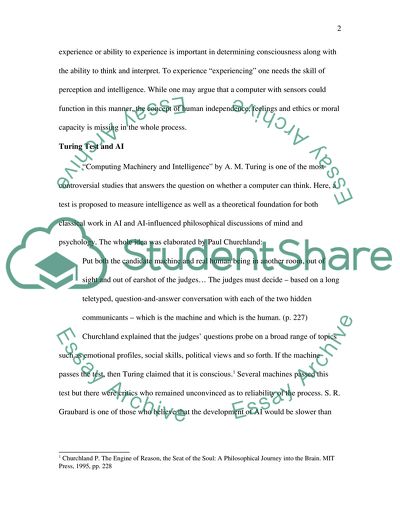Cite this document
(“Can Machines Know Essay Example | Topics and Well Written Essays - 1250 words”, n.d.)
Can Machines Know Essay Example | Topics and Well Written Essays - 1250 words. Retrieved from https://studentshare.org/philosophy/1539465-can-machines-know
Can Machines Know Essay Example | Topics and Well Written Essays - 1250 words. Retrieved from https://studentshare.org/philosophy/1539465-can-machines-know
(Can Machines Know Essay Example | Topics and Well Written Essays - 1250 Words)
Can Machines Know Essay Example | Topics and Well Written Essays - 1250 Words. https://studentshare.org/philosophy/1539465-can-machines-know.
Can Machines Know Essay Example | Topics and Well Written Essays - 1250 Words. https://studentshare.org/philosophy/1539465-can-machines-know.
“Can Machines Know Essay Example | Topics and Well Written Essays - 1250 Words”, n.d. https://studentshare.org/philosophy/1539465-can-machines-know.


